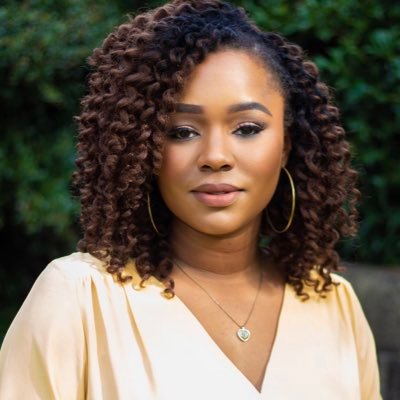
Twelve teams at the recent Capital One Women in Tech Demo Day competition took on the task of building a solution to help girls of color see themselves in the world of tech. The ideas ran the gamut, ranging from innovative messaging platforms linking students to professionals for development and mentorship, to interactive games routing young girls through math and logic problems teaching them to code as they mastered each level.
On Saturday in Washington, D.C., each team presented their ideas as a solution for Capital One’s community partner, Black Girls Code.
Since 2010, Oakland-based Black Girls Code has spread its programs throughout the country, teaching basic computer-science literacy in cities like New York, Boston, Chicago, Miami and Raleigh, North Carolina. In six years, the organization reached over 6,000 students through after-school programs and summer camps. Every year, students are latched into the support of local tech communities and have access to a diverse group of mentors across a variety of fields in the technology industry.
Judges from Capital One, Black Girls Code, Virginia’s House of Representative and Women@Forbes ultimately selected interactive storybook platform Alika’s Treehouse. The platform teaches coding techniques through the adventures of a young black girl named Alika. And the team took home a $10,000 scholarship to global tech training boot camp General Assembly (which they immediately donated to BGC students), as well as a $15,000 donation in their honor to Black Girls Code.
Kimberly Bryant, founder of Black Girls Code, inspired student and mentor attendees with her stance on equality for women and women of color. She spoke candidly about her goal to get young women from underrepresented communities sustained in the technology industry by creating community hubs and ecosystems to provide the necessary connections.
Bryant went on to acknowledge that the breadth of the technology industry can reach even those who are not inclined to go into computer science. Take for instance an art student who may want to learn necessary coding skills to sell art via a homemade platform. Bryant's goal is to see young women decide how they want to learn and use their skills to choose their own path, be that through a corporate career or through entrepreneurship built on the platform of technology.
“The next Steve Jobs will be a woman of color [...] and without a doubt, the next innovation will come from a woman," Bryant said in Washington, D.C. "We have the untapped talent and creativity, because our ideas have not been brought to the table."The Women in Tech hackathon event has been held in New York and will head to Dallas later this fall. The events are open to designers, developers, entrepreneurs, and general audiences interested in participating on a team in support of connecting young women to the tech industry.
“At Capital One, we’re passionate about supporting women in tech across all stages of the pipeline,” said Julie Elberfeld, Capital One Commercial CIO and Women in Tech executive leader. “Women in Tech Demo Days gives professional women and male allies across three cities the chance to use their tech skills to help young girls develop a love of tech at an early age.”
Images courtesy of Martini Media Solutions, used with permission

Sherrell Dorsey is a social impact storyteller, social entrepreneur and advocate for environmental, social and economic equity in underserved communities. Sherrell speaks and writes frequently on the topics of sustainability, technology, and digital inclusion.














